Ken Whitcomb has always loved to run.
And he’s always loved his family.
But a serious genetic heart condition has threatened both.
He and his family members can’t outrun this. It’s likely been stalking them for 25-plus generations—haunting them for hundreds of years, dating back to an ancestor in Holland.
Whitcomb, 53, suffers from hypertrophic cardiomyopathy, or HCM, a life-threatening heart condition that can cause sudden death.
His mom has it, too, and several of his family members have died from it.
HCM is a leading cause of sudden death in the young, particularly athletes.
“I was an athlete in high school and college,” Whitcomb said.
He excelled in track and field. In his 20s and 30s, he even coached the sport.
But his running times kept slowing.
The first signs
“I started noticing in my 20s that I could not run as well as I used to, whether I was practicing with student athletes or out running on my own,” Whitcomb said. “The last two times that I ran I coughed up blood.”
He thought he was out of shape.
“At the time, I didn’t realize it was part of the disease,” he said. “Now, I understand physiologically why that happened.”
Other things happened, too. It became difficult to run around in the yard with the kids, or even lift something heavy.
“I would have difficulty breathing and I’d have to stop,” Whitcomb said. “I couldn’t run and catch a Frisbee.”
Whitcomb made an appointment with his primary care physician, who listened to his heart.
The doctor noticed a heart murmur and referred him to a cardiologist, who performed an ultrasound, electrocardiogram and stress test.
A dangerous diagnosis
The findings led to a diagnosis of hypertrophic obstructive cardiomyopathy.
“There are about 40 different names for this disease that have been used in the last 50 years,” Whitcomb said. “It’s not always been well diagnosed. It manifests itself in different ways and has many different symptoms.”
Whitcomb has made huge strides in understanding hypertrophic cardiomyopathy. He learned that it likely originates from his Dutch heritage. The particular genetic mutation he suffers from is common in the northern part of Holland, where his ancestors lived.
But the scariest thing he learned? When hypertrophic cardiomyopathy causes ventricular fibrillation, it can be fatal.
“That’s the event that causes sudden death for young people, athletes,” he said. “That’s why you see those devices on the walls in public buildings.
“A defibrillator can kick-start the heart back into a normal rhythm when all it’s doing is quivering,” he said. “It can’t create a pulse because it doesn’t have the correct electrical signals. That’s what happened to my mom’s brother.”
His mom’s brother died suddenly from the heart condition. So did several cousins.
Whitcomb underwent drug therapy, but after a year his symptoms became more severe and he found it increasingly difficult to breathe.
“One time I fell over backward in a public place after walking up stairs,” Whitcomb said. “That was embarrassing.”
He started seeing Michael Dickinson, MD, a Spectrum Health heart transplant expert.
“I found out he had done a transplant on at least one of my mother’s cousins, so he was well aware of our family history,” Whitcomb said.
Out of his mom’s cousins’ family, four of the eight kids have been diagnosed with HCM. Two died suddenly.
But Dr. Dickinson didn’t recommend a transplant for Whitcomb, because his heart failure did not yet meet criteria for transplant, and given his young age, the long-term side effects of anti-rejection drugs on Whitcomb’s other organs may be unfavorable.
“That was discouraging because it was becoming increasingly more difficult to do normal things,” Whitcomb said.
Help for the heart
In 2011, Whitcomb had a defibrillator installed. In the event his HCM causes life-threatening ventricular defibrillation, the device is designed to kick in to jump-start his heart.
In the summer of 2012, Whitcomb underwent an evaluation with David Fermin, MD, a cardiologist fellow at that time who is now the medical director of the Spectrum Health HCM program.
Whitcomb received encouraging news that he was a candidate for a surgical procedure to correct the obstruction of the heart caused by HCM.
On Nov. 1, 2012, he underwent a septal myectomy, an open-heart procedure.
“They stop your heart and put you on a heart-lung machine and make an incision in your aorta,” Whitcomb said. “They reach through the (aortic) valve into the (left) ventricle and then slice off the enlarged muscle. Essentially, they’re cutting the obstruction out and removing it.”
The procedure, typically done at a few major centers around the country, is now performed with increasing frequency by the HCM team at Spectrum Health.
The procedure put Whitcomb back in the race, back to a normal life.
“It was life changing,” he said. “There’s a huge difference in what I was able to do and what I can do today. I have been able to resume activities that I couldn’t even think about doing before.
“In the last three weeks, I started running again,” he said. “It was the first time I’ve run in about 25 years. I didn’t collapse. …I didn’t have any problems. I had thought there was no chance I would ever be able to do that again. I’m just in a whole different place.”
Dr. Fermin continues to follow Whitcomb closely.
“Ken has made remarkable progress,” Dr. Fermin said. “He looks and feels better than at any point since I started seeing him nearly five years ago.”
Whitcomb said he’s pleased with Dr. Fermin’s follow-through.
“He understands the disease as well as anyone I’ve ever met,” Whitcomb said. “I have a lot of family at risk. Our kids have not shown any symptoms yet. We’re watching them very closely. They have not been genetically tested yet, but there is a plan to do that.”
A family affair
After his ordeal, Whitcomb’s mother underwent genetic testing at Spectrum Health. She tested positive for HCM.
“We knew there was heart disease in our family, but I was patient zero with regard to identifying HCM in our family,” Whitcomb said. “We didn’t really understand how much risk all of us were at with this disease.”
Whitcomb’s mom, Lucille Whitcomb, knew her father had heart trouble.
“His heart would beat kind of fast,” Lucille said. “Back then, when it happened to him, they gave him nitroglycerin. I’ve had the same experience but not near as serious as Ken’s problems. We now know my brother has had it, my father has had it.”
Prior to her brother’s sudden death, there were no warnings, Lucille said.
“He had had breakfast and told his wife, ‘We have to get going, we have to get to church,’” Lucille said. “He went into the bathroom and died right there on the floor. He was in his early 70s.”
Lucille’s father and one of her uncles also died suddenly in their early 70s.
That has her worried. She turns 74 in August.
“He never had a warning that was going to happen on that day,” she said of her brother. “He never complained of chest pains or his heart beating too fast.”
She talked to Dr. Fermin about her concerns.
“I was very interested in having a defibrillator installed, if that would be something I could do,” she said. “I’m concerned about the sudden death my brother had. I’m a Christian and I know our days are numbered. But I’ve got children, grandchildren. … There’s not going to be a warning.”
Because she was otherwise healthy and had a strong family history, Dr. Fermin felt a defibrillator was a reasonable option for Lucille.
Alfred Albano, MD, a cardiac electrophysiologist, implanted Lucille’s defibrillator last November.
“I know that if it’s my time, it’s my time,” she said. “I don’t have an issue with that. But if there’s something out there that can help, let’s try it.”
Long ago, far away
Ryan Rodarmer, a genetic counselor with Spectrum Health, said his clinic can identify the genetic cause of HCM in some families.
“This allows us to determine which family members are at increased risk for the disease and which are not, via a blood test,” Rodarmer said.
Before the technology became available, family members of known HCM patients underwent lifelong EKGs and echocardiograms for monitoring, even though some of them may not have inherited the condition. There were many unknowns.
Rodarmer said thousands of genetic mutations in more than 25 different genes are now known to cause HCM.
“Many of these mutations are unique to just one or two families worldwide,” he said. “In the Netherlands, however, the majority of mutations occur in just one gene (the MYBPC3 gene).
“And not only that, but the majority of those with HCM in the Netherlands have the disease as a result of one of just three particular mutations within this gene,” he said.
Each of the three genetic mutations is a founder mutation, and each traces back many generations to a common ancestor from the Netherlands.
As early as the 1840s and during the 19th century, more Dutch immigrants made West Michigan their home than anywhere else in the United States, Rodarmer said.
“We have recognized that many of our HCM families who report Dutch ancestry carry one of these three founder mutations,” Rodarmer said. “These families likely share a common ancestor, which may date back to as many as 25-plus generations ago.”
Dr. Fermin, who launched the HCM program at Spectrum Health, said Whitcomb and Lucille are both doing well.
“Although Lucille passed on the gene to Ken, she only has a mild form of HCM and has not developed significant problems,” Dr. Fermin said. “Ken has been keeping active and healthy with no cardiac symptoms at this time.”
Whitcomb and Lucille and their family members are not alone.
Dr. Fermin estimates HCM affects about 1 in 500 people. It’s one of the most common genetic cardiovascular disorders.
“We estimate that between 2,000 to 4,000 people in West Michigan may be affected by HCM,” Dr. Fermin said. “Although HCM is a potentially serious genetic heart condition, with specialized medical care and family screening, the long-term outcomes for HCM are very good, with a similar life expectancy to the general population.”
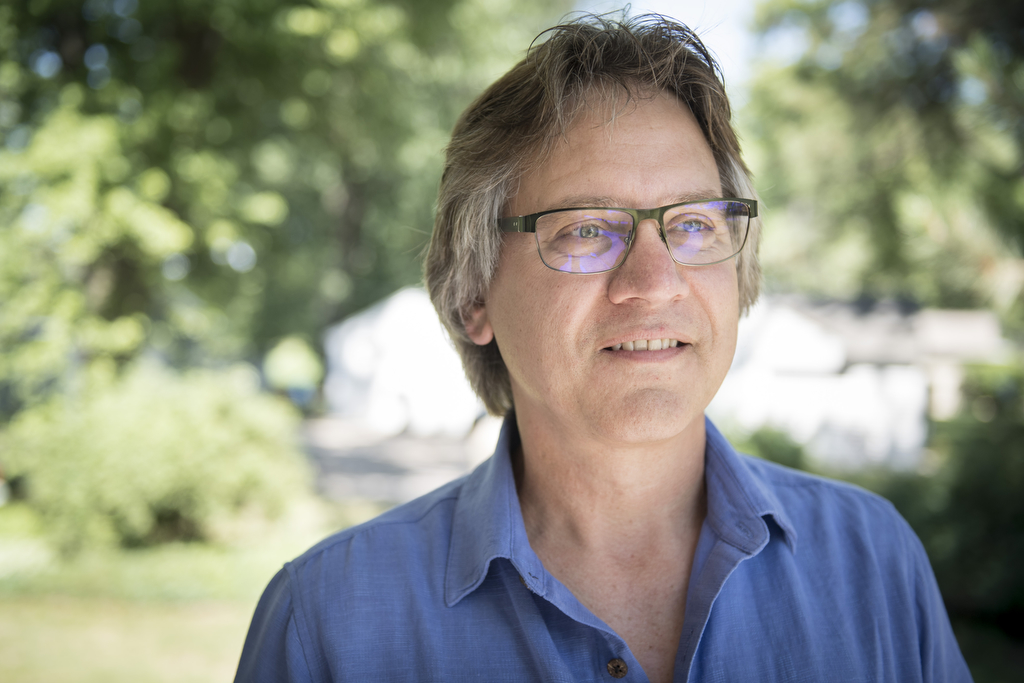
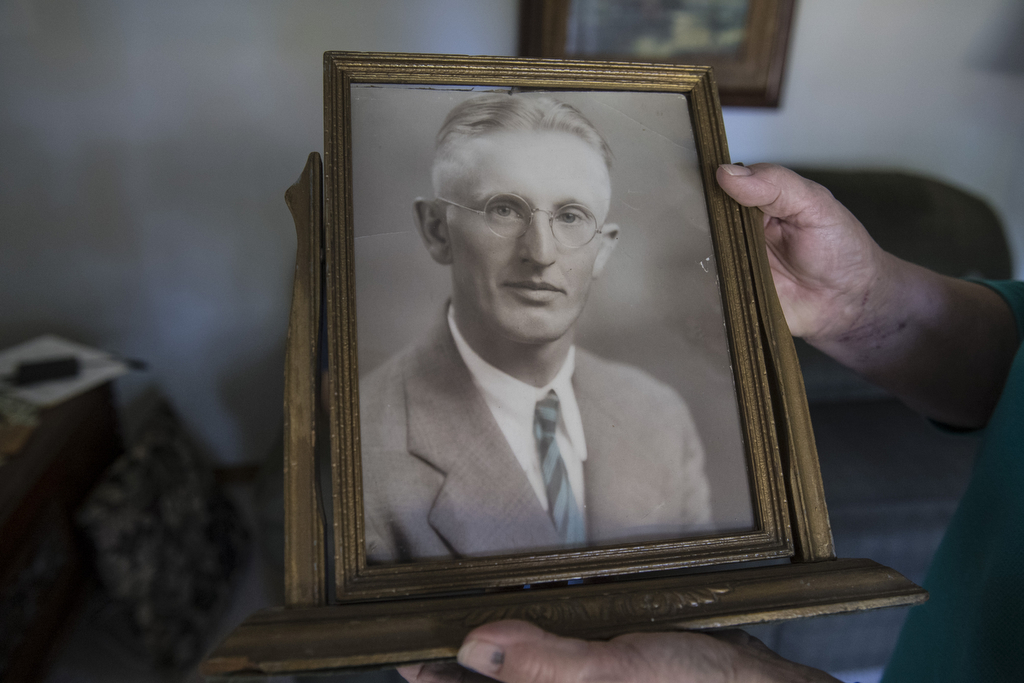
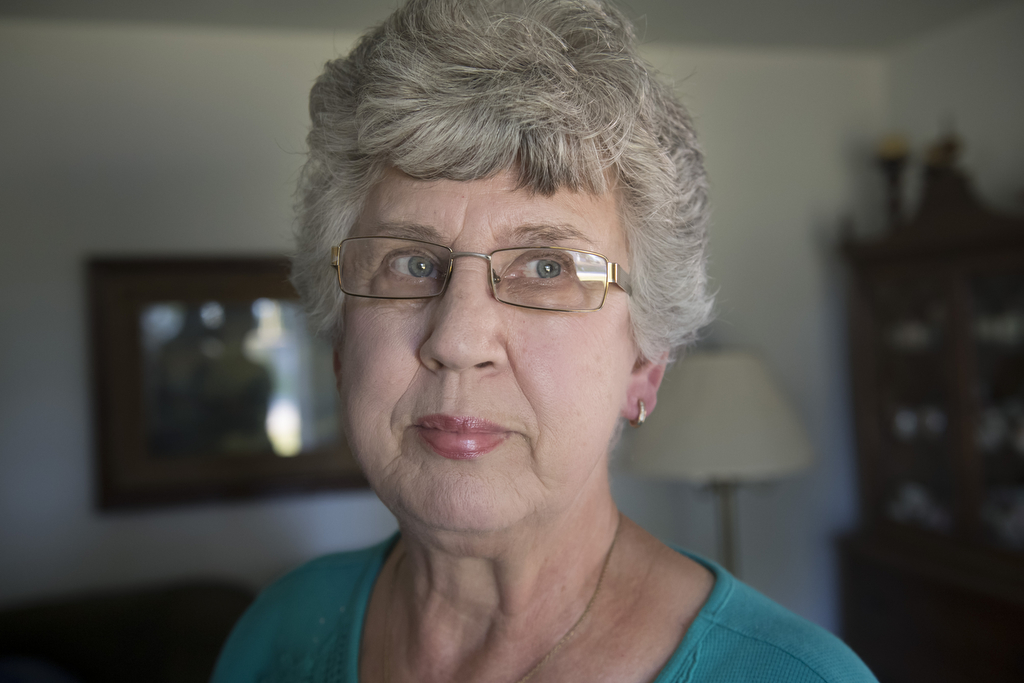
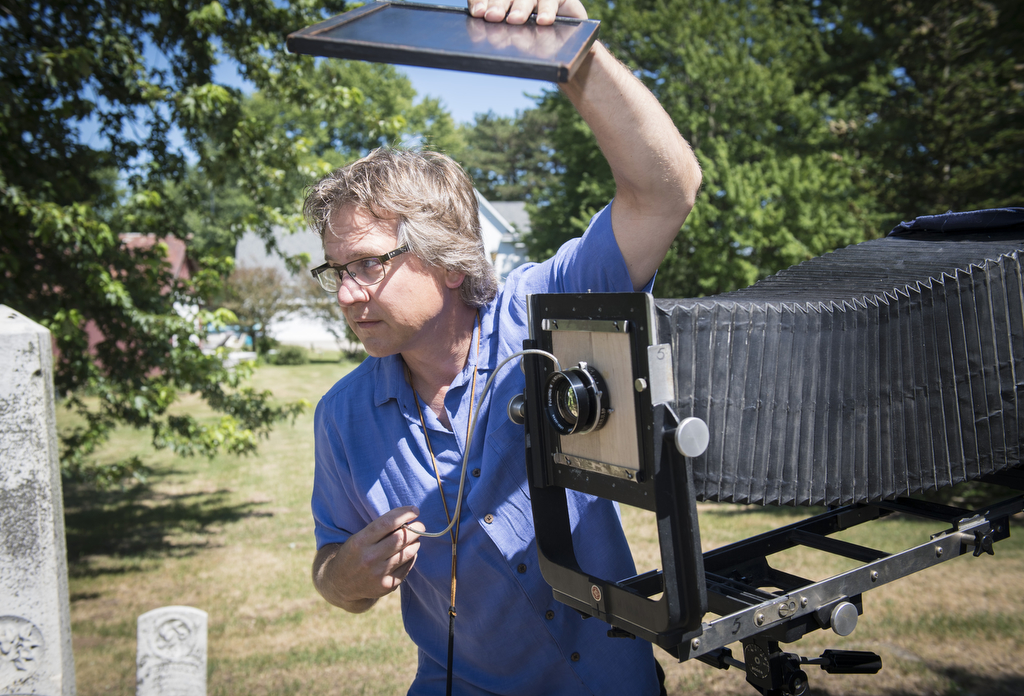

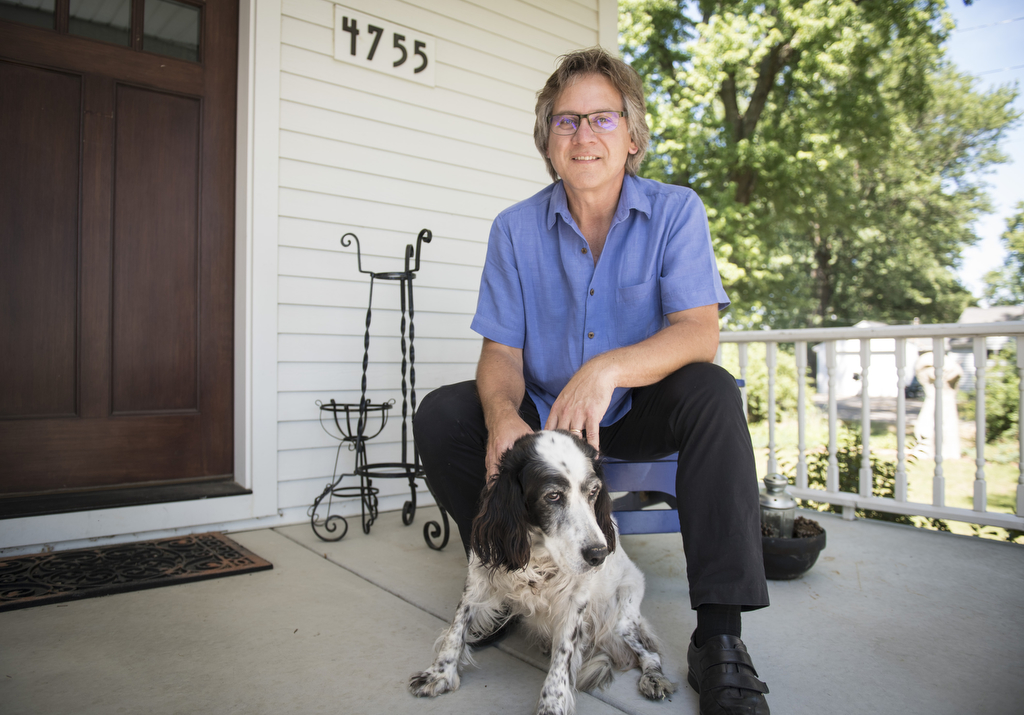
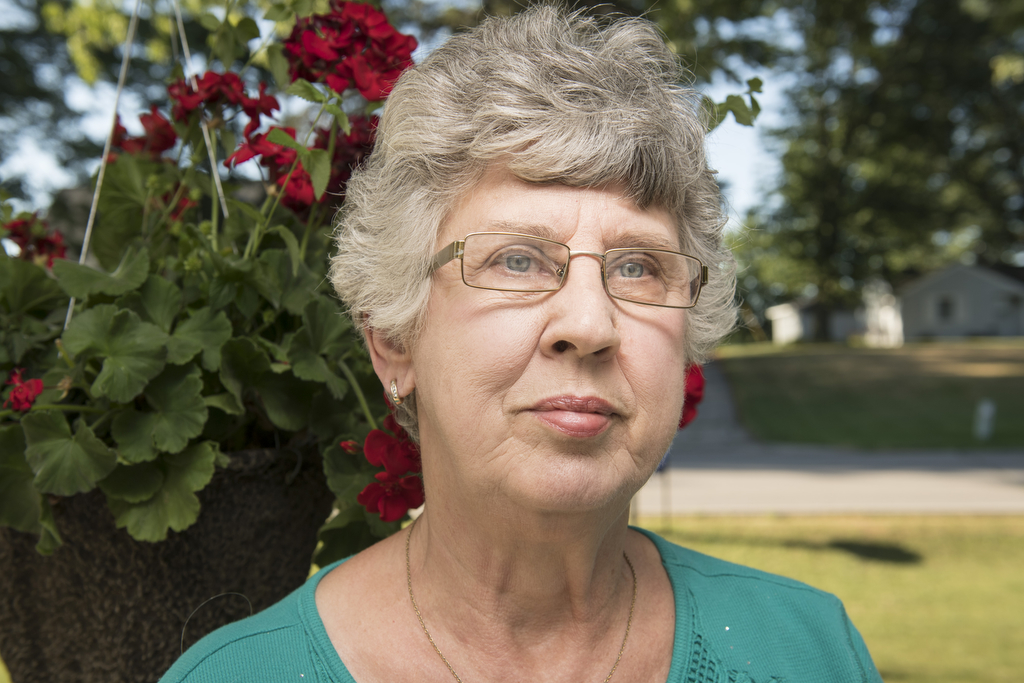

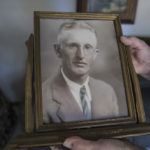
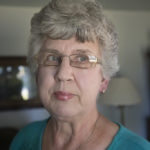
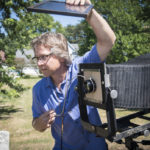
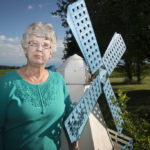
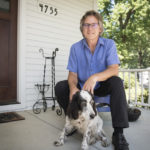

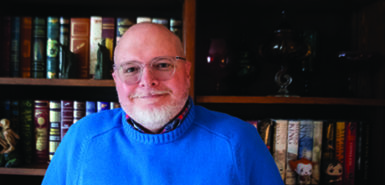 /a>
/a>
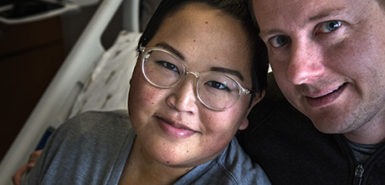 /a>
/a>
 /a>
/a>
Very informative and, thankfully, very encouraging.
My husband is from Holland and I’m just curious to know what some of the family names are that carry the gene. It seems to me that all Dutch people should be made aware of this and be able to research it.
Hi Kim! Thank you for being a Health Beat reader and feel free to share this story to raise awareness of this issue. You’re right in that all people with Dutch ancestry should be made aware of this. We at Health Beat don’t have access to a list of family names that carry this gene. We recommend anyone with concerns about their family history discuss this article with their physician or seek out the medical expertise and genetic testing that’s available by calling the Spectrum Health Hypertrophic Cardiomyopathy Program at 616.885.5355. Best wishes to you.
Kroll was his grand father’s last name
The SHMG HCM Clinic is starting an HCM Support Group that kicks off in a September, 2017.
Research the primary symptoms including arrhythmia, difficulty functioning under exertion, difficulty breathing, and syncope. Ask family members about relatives that displayed these symptoms, or may have experienced sudden-death from ventricular fibrillation.
As my cousin Dr. Joyce De Jong, an M.E. reminds all of our family, “Sometimes the first symptom of HCM is sudden death.”
Bring this information to your primary care physician, or contact the HCM clinic in Grand Rapids, MI.
Thank you, Ken, for spreading the word about this condition. We sure do hope we can save some lives through awareness!
Hi
Is there a way to Skype the HCM support group meetings? I live in Dearborn MI and there are no such groups in my area.
Hi Anne, What a great suggestion. Please contact the HCM team to determine what could be done to make these meetings accessible to people near and far. You may reach them at: 616.885.5355. Cheers, Cheryl
Apparently this is getting to be a an issue. My cousin has insisted that all her cousins have the genetic testing done. She has the condition and had a defibrillator installed. My 2 uncles both died of a sudden heart attack and their sister, my mother had quad bypass. One of my cousin’s siblings does not carry the gene so her children will not have the possibility of the gene to advance. This article really supports her urgency for all of her cousins to find out if they carry the gene and if they do, that their children also get tested. My cousin has stated that insurance may cover this and otherwise it may cost around $100.00 to have the blood work done. I am not sure how accurate this is, but if you need to know if you carry the gene even if you have do not have any symptoms, I would suggest to call the number.
Norma,
You make a very good point. Genetic testing is the only way to be certain that is not the cause of HCM. There are a couple additional causes that are due to having had specific illnesses, but those are rarer cases. If a patient is negative for all of the mutations that cause HCM, they may still be a rare exception, but usually one can take peace of mind in being negative for HCM.
It is recommended that the oldest living individual in any family line be tested. If that person is positive, the next generation should all be tested, and so on. A negative test means that person and all of their successor generations will be negative for HCM.
One aspect of genetic testing that you should consider prior to having it done is how it may affect one’s ability to enroll in a life insurance policy once positive. While the ACA currently prevents an individual from being denied enrollment in a health insurance plan due to a pre-existing condition, a person may be denied enrollment in a life insurance policy due to a pre-existing condition. If you may need life insurance in the future, you may wish to enroll before being tested for the mutation which causes HCM.
This was fascinating to read. My brother-in-law had a sister who married a Kroll from Jenison. She died in a car accident and her husband died a few years back with heart trouble. Also think he had a history of heart disease in his family with many dieing young. ALSO, know my brother in law had heart trouble since age 40 and his family and relatives have had many die from it. They are from Dutch ancestry and live all over the state. Am passing this along to him. Thanks.
Thank you, Betty. Yes, please pass along the article to all who you feel may find it of use. Best wishes to you and your family. Cheers, Cheryl